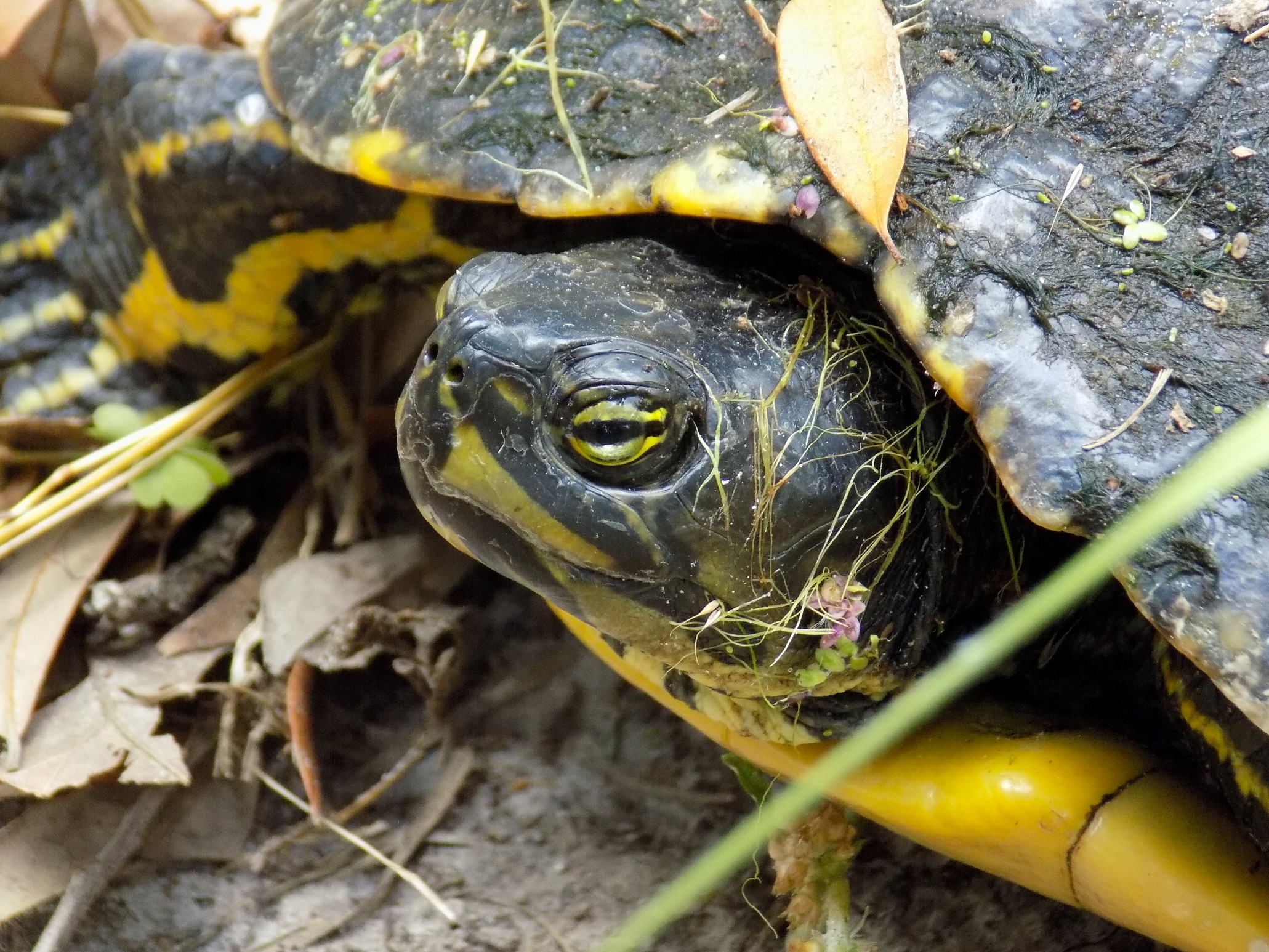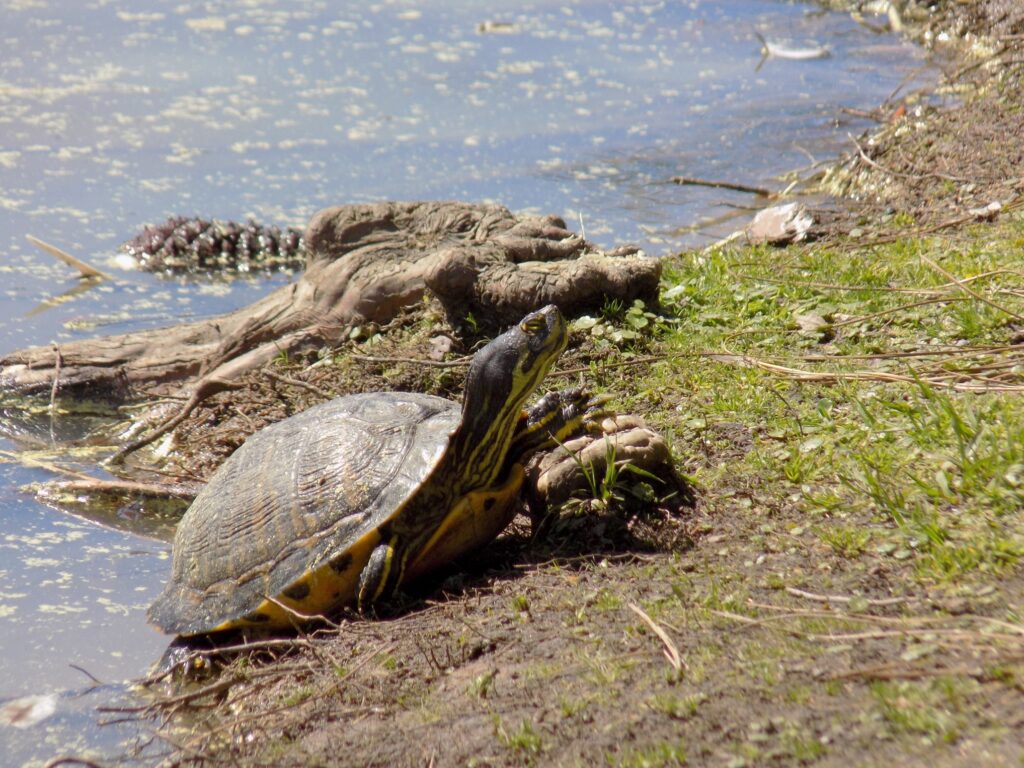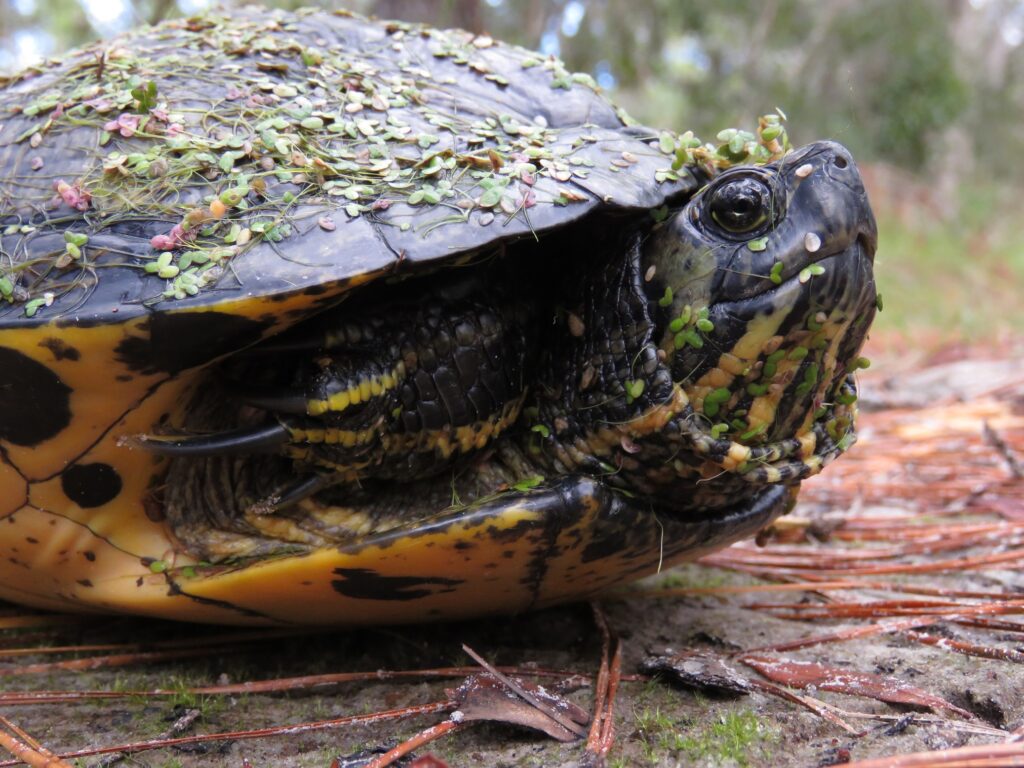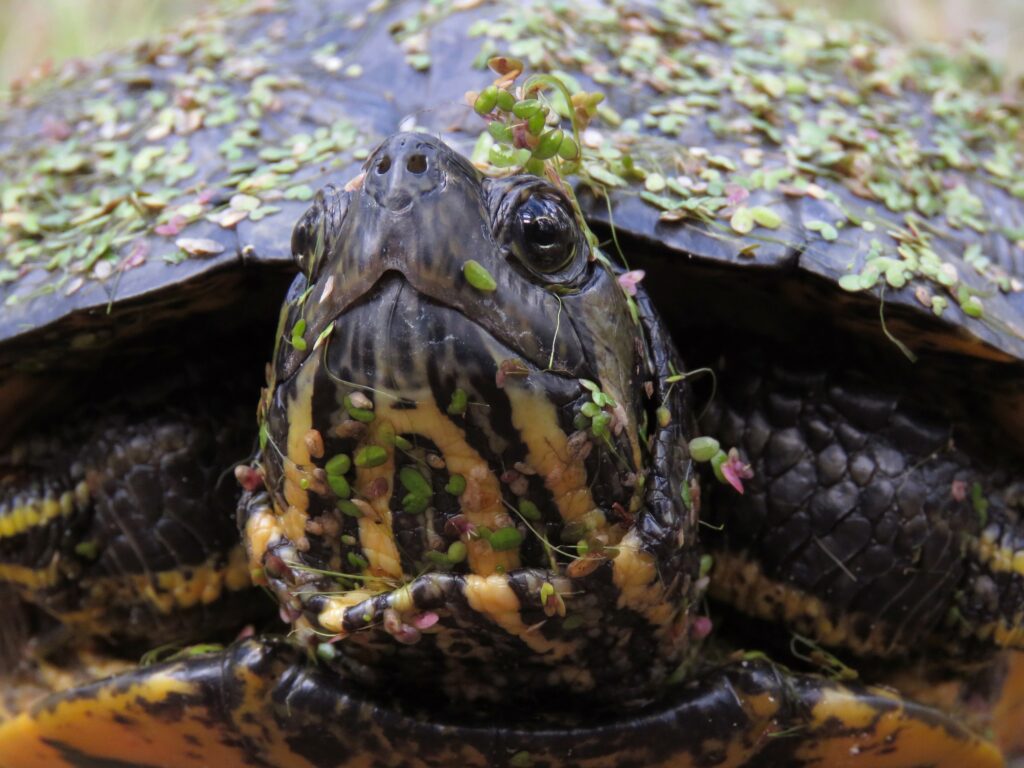



This week for Flora and Fauna Friday we have our most abundant aquatic reptile, the Yellow-bellied Slider (Trachemys scripta scripta).
The Yellow-bellied Slider is by far our most common Pond Turtle in the Lowcountry. When you think of turtles lazily lined on logs in the blazing sun or shambling around in a pet store aquarium, this is the species that comes to mind. They are a fairly large turtle that can reach twelve inches in length. Their belly is predictably yellow and their back a grungy gray-black of bumps and ridges. They’re best distinguished by their yellow sideburns, a heavy vertical band of lemon-yellow just behind the eye. The Yellow-bellied Slider has a sister subspecies that’s now found in South Carolina, called the Red-eared Slider (T. s. elegans). The Red-eared Slider is native to the Mississippi River Basin but has been spread extensively throughout the United States by the pet trade. They’re common in the upstate and around human neighborhoods but not so much in the wilds of the Lowcountry. This subspecies is easily identified by their namesake red “ear”.
The Yellow-bellied Slider appears practically anywhere there is a permanent freshwater body. That includes lakes, rivers, deepwater swamps, Carolina Bays, and parking lot retention ponds. They will eat anything they can catch or scavenge as well as some aquatic plants. They use their hardened beak and extendable neck to nab minnows, crawfish, frogs, and digits alike. This species, along with some other Pond Turtles, have an interesting method of courting a mate. The art of seductive jazz-hands. Males are smaller than females and grow long claws on their front feet. During courtship, the male will swim backwards in front of a female while rattling his claws in her face. Romantic.